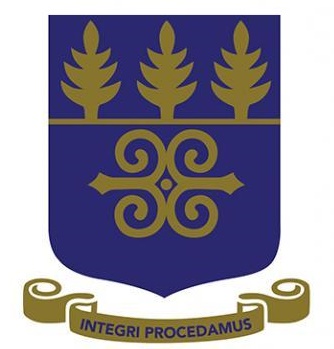ARAB 102 2 Credit Hours
Oral Communication Skills
This information is for second semester 2017/2018 academic year
Teacher responsible
Mohammed Mubarak Hidir
Availability
This course is available open to all visiting students but only as a second semester course.
Course Content
As a continuation of ARAB 101, this course builds upon the rudiments of Modern Standard Arabic learnt in the previous course. The course deals with the examination of components of various Arabic simple sentence structures. Oral expression will be practiced through simulations of everyday expressions. The course among others will give students more room for creativity as they will practice more drills to help them communicate in Modern Standard Arabic at the elementary level.
Teaching
Group A Monday 7:30 – 9:20.
Group B Monday 15:30 – 17:20.
The selected text will be read in class followed by translation and explanation. Students will be furnished with a list of vocabularies related to the topic after each lecture. They will be made to construct sentences with these vocabularies. These exercises will be discussed at the beginning of the lecture before the new lesson is introduced.
Formative Coursework
Student’s general performance is assessed through class participation, group presentations, written assignment, class tests and final end-of Semester Examination.
Students are to take note of the following information:
· Participation: Since the course employs a communicative approach to language learning, active participation in class is always required.
· Assignments: Students are advised to do and present assignments on time in order to get feedback in the next class
- Students are to speak Arabic especially in class unless otherwise permitted by the instructor
Reading List:
Abboud, Peter (1995). Elementary Modern Standard Arabic Part 1 Cambridge, UK, USA.
Al-Fawzan, A. I. & Hussayn, M. T. (2004). العربية بين يديك - كتاب الطالب (1) Arabic between your hands textbook: Series.
Cowan, D. (2006). A Dictionary of Modern Literary Arabic. Beirut: Hans Wehr. Librarie du Lubnan.
Kristen Brustad (2004). العربية تعّلم في الكتاب Al-Kitaab fii ta’allum al-’Arabiyya: A Textbook for Beginning Arabic, Part One. Washington D. C. Georgetown University Press.
Jane Wightwick (1990). Mastering Arabic. New York: Palgrave Publishers Ltd.
Scheindlin, Raymond (2007). 201 Arabic Verbs - fully conjugated in all the forms. New York: Barron's Educational Series.
Wightwick, J. & M. Gaafar (2007). Arabic verbs & essentials of grammar. New York: McGraw-Hill.
Assessment and Grading
Mid-Semester Test/Interim Assessment 30%
Presentation 10%
Assignment 10%
Class Participation 10%
Final Oral Examination: 40% (Reading 15%, comprehension 15% and speaking/expression 10%)
Grading Scale:
|
Letter Grade |
Marks |
Grade Point |
Interpretation |
|
A |
80 – 100 |
4.0 |
Outstanding |
|
B+ |
75 – 79 |
3.5 |
Very Good |
|
B |
70 – 74 |
3.0 |
Good |
|
C+ |
65 – 69 |
2.5 |
Fairly Good |
|
C |
60 – 64 |
2.0 |
Average |
|
D+ |
55 – 59 |
1.5 |
Below Average |
|
D |
50 – 54 |
1.0 |
Marginal Pass |
|
*E |
45-49 |
0.5 |
Unsatisfactory |
|
F |
0 – 44 |
0 |
Fail |
*Although this is a failure grade, it may still be accepted as fulfilling the prerequisite for other courses.
Other information
- Attendance: class attendance and tutorials are obligatory in accordance with the regulations of the university which states that “A student who is absent for a cumulative period of 25% from all lectures, tutorials, practical and other activities prescribed for any course in any semester shall be deemed to have withdrawn from the course. Such a student shall not be permitted to sit the semester examination.
- Participation: Since the course employs a communicative approach to language learning, active participation in class is always required.
- Assignments: Students are advised to do and present assignment on time in order to get feedback in the next class.
- The use of mobile phones is not allowed unless authorized by the instructor for learning purposes.

